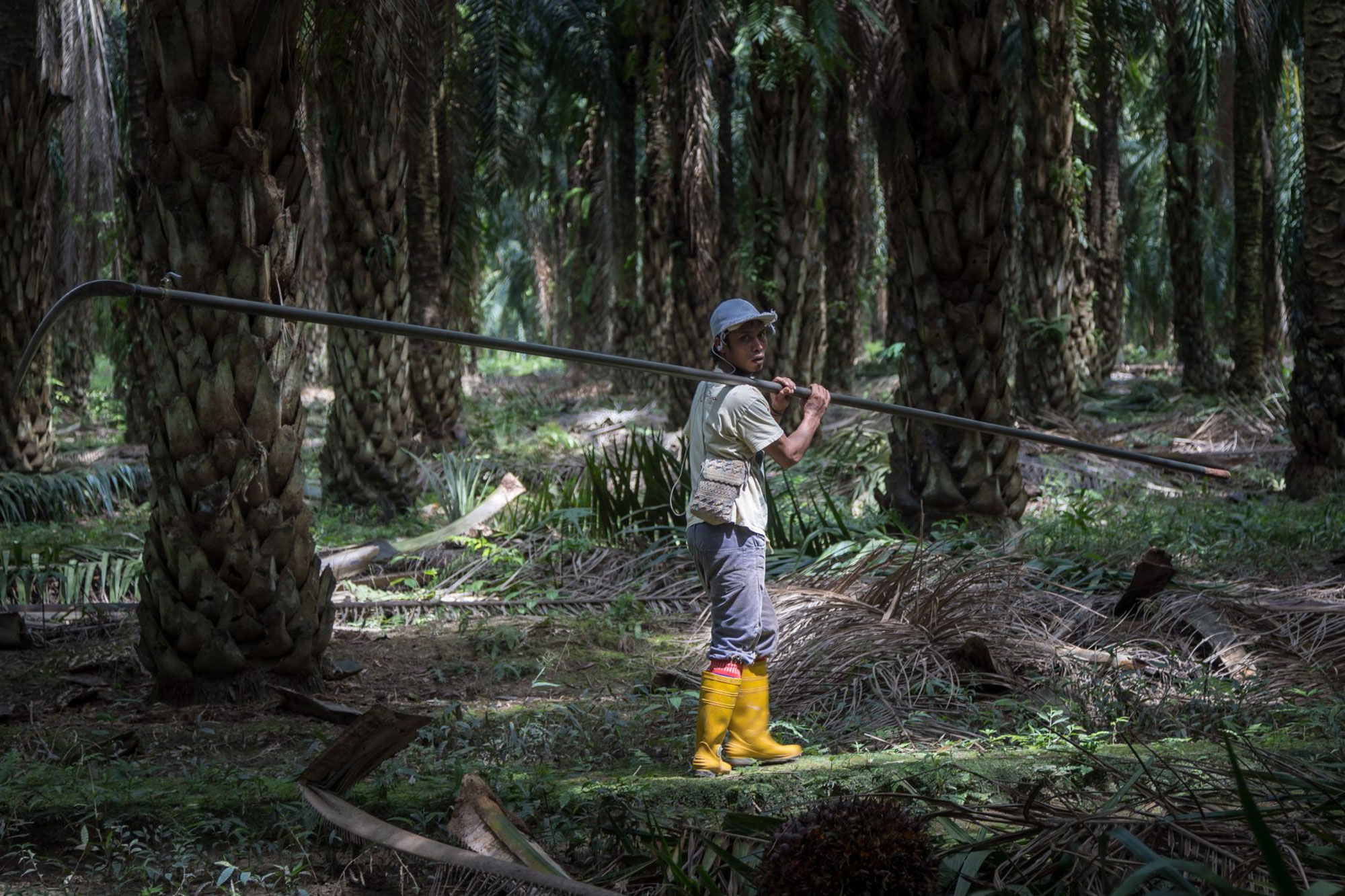
Expansion of oil palm production in remote forest areas requires careful planning and evaluation if the communities are to benefit, according to a report by researchers at the Durrell Institute of Conservation and Ecology (DICE)..
Their findings show that unsustainable livelihoods, socioeconomic inequality and environmental issues remain major challenges in the oil palm industry. The research, entitled Does oil palm agriculture help alleviate poverty? A multidimensional counterfactual assessment of oil palm development in Indonesia is published in the journal World Development. The researchers investigated the claim by palm oil-producing countries that oil palm agriculture helps alleviate poverty, despite limited evidence about the contribution of this crop on villagers’ well-being.
The research was led by a multi-national team led Dr Truly Santika with Dr Matthew Struebig and Professor Erik Meijaard, all from DICE, along with colleagues in Indonesia, Australia and other countries. They examined the association between the development of oil palm plantations and change in objective measures of well-being between 2000 and 2014 across 6,600 villages in Kalimantan, Indonesian Borneo.
The researchers found that social impacts are difficult to generalise as positive or negative. Improved socioeconomic welfare was found where the villages already had a market-based economy, typically in areas with low forest cover. The opposite was found in remote villages relying on subsistence-based livelihoods and with higher forest cover, as well as in more recent palm plantations. Overall, and regardless of location, villages in Kalimantan saw slower improvements to social and environmental well-being if they grew oil palm compared to those that didn’t.
Dr Struebig said, “The research tells us that the potential for oil palm to alleviate poverty depends crucially on the social and environmental context of where it’s grown. Countries should think twice about expanding agriculture in forested regions if they are to maximise benefits to local people.”
Does oil palm agriculture help alleviate poverty? A multidimensional counterfactual assessment of oil palm development in Indonesia by Truly Santika, Erik Meijaard and Matthew Struebig (Durrell Institute of Conservation and Ecology (DICE), University of Kent), Kerrie Wilson (Queensland University of Technology), Sugeng Budiharta (Indonesian Institute of Sciences), Elizabeth Law (Norwegian Institute for Nature Research), Tun Min Poh (Borneo Futures), Marc Ancrenaz (IUCN Oil Palm Task Force) is published in the journal World Development.




